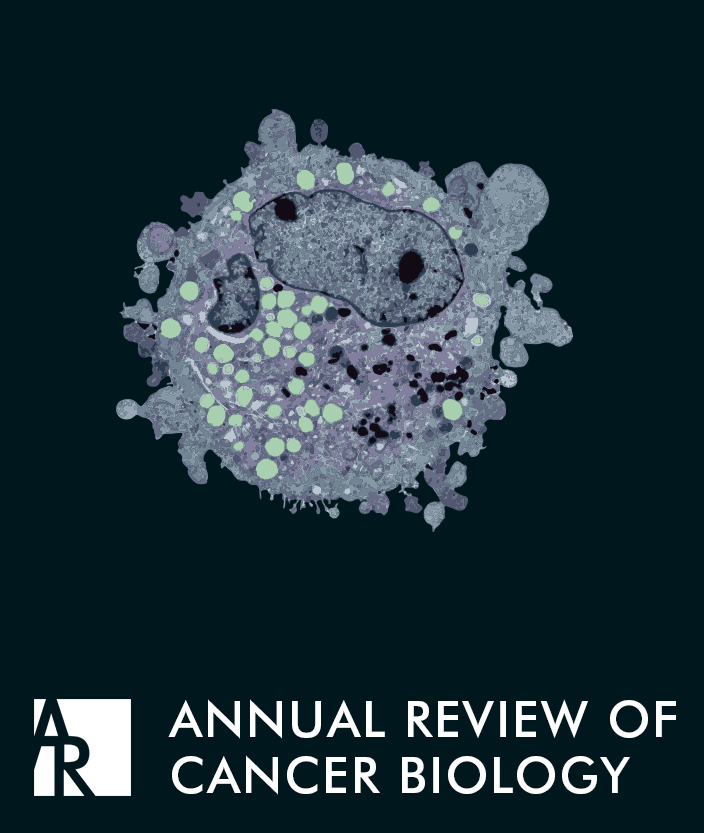The Role of Autophagy in Cancer.
IF 4.7
2区 医学
Q1 ONCOLOGY
Annual Review of Cancer Biology-Series
Pub Date : 2017-03-01
DOI:10.1146/annurev-cancerbio-041816-122338
引用次数: 127
Abstract
Autophagy is a highly conserved and regulated process that targets proteins and damaged organelles for lysosomal degradation to maintain cell metabolism, genomic integrity, and cell survival. The role of autophagy in cancer is dynamic and depends, in part, on tumor type and stage. Although autophagy constrains tumor initiation in normal tissue, some tumors rely on autophagy for tumor promotion and maintenance. Studies in genetically engineered mouse models support the idea that autophagy can constrain tumor initiation by regulating DNA damage and oxidative stress. In established tumors, autophagy can also be required for tumor maintenance, allowing tumors to survive environmental stress and providing intermediates for cell metabolism. Autophagy can also be induced in response to chemotherapeutics, acting as a drug-resistance mechanism. Therefore, targeting autophagy is an attractive cancer therapeutic option currently undergoing validation in clinical trials.


自噬在癌症中的作用。
自噬是一个高度保守和受调控的过程,它针对蛋白质和受损的细胞器进行溶酶体降解,以维持细胞代谢、基因组完整性和细胞存活。自噬在癌症中的作用是动态的,部分取决于肿瘤类型和分期。虽然在正常组织中自噬抑制肿瘤的发生,但一些肿瘤依靠自噬促进和维持肿瘤。基因工程小鼠模型的研究支持自噬可以通过调节DNA损伤和氧化应激来抑制肿瘤发生的观点。在已建立的肿瘤中,自噬也可能是肿瘤维持所必需的,使肿瘤能够在环境胁迫下存活,并为细胞代谢提供中间物质。自噬也可以诱导对化疗的反应,作为一种耐药机制。因此,靶向自噬是一种有吸引力的癌症治疗选择,目前正在临床试验中进行验证。
本文章由计算机程序翻译,如有差异,请以英文原文为准。
求助全文
约1分钟内获得全文
求助全文
来源期刊

Annual Review of Cancer Biology-Series
Medicine-Oncology
CiteScore
14.50
自引率
1.30%
发文量
13
期刊介绍:
The Annual Review of Cancer Biology offers comprehensive reviews on various topics within cancer research, covering pivotal and emerging areas in the field. As our understanding of cancer's fundamental mechanisms deepens and more findings transition into targeted clinical treatments, the journal is structured around three main themes: Cancer Cell Biology, Tumorigenesis and Cancer Progression, and Translational Cancer Science. The current volume of this journal has transitioned from gated to open access through Annual Reviews' Subscribe to Open program, ensuring all articles are published under a CC BY license.
 求助内容:
求助内容: 应助结果提醒方式:
应助结果提醒方式:


